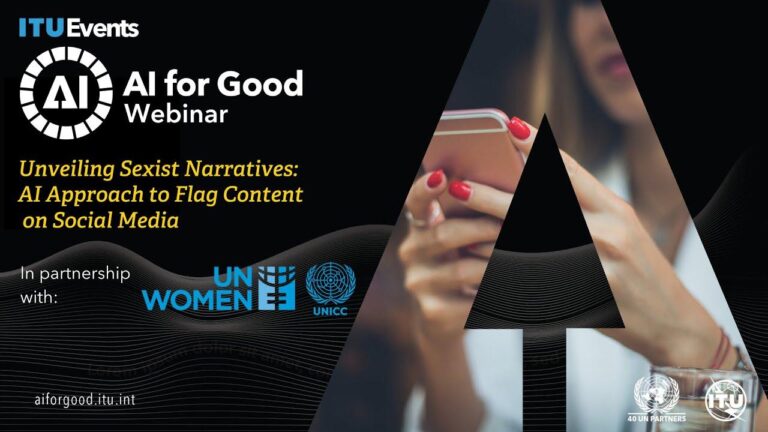A prominent Italian online platform has come under intense scrutiny for disseminating sexist content targeting Prime Minister Giorgia Meloni and other female public figures. The controversial material has sparked a broader debate about misogyny in Italy’s digital media landscape, raising questions about the treatment of women in politics and public life. This development highlights ongoing challenges regarding gender equality and respect within the country’s rapidly evolving online discourse.
Italian Platform Under Fire for Sexist Attacks on Meloni and Prominent Female Figures
A popular Italian social media platform has come under intense scrutiny after a series of posts targeting Giorgia Meloni, Italy’s first female prime minister, alongside other prominent women in the public eye. Observers and advocacy groups have condemned the platform for propagating sexist rhetoric that not only undermines the achievements of these women but also perpetuates harmful stereotypes. Content analysts note that the attacks are often characterized by personal insults, gender-based slurs, and dismissive commentary focused on appearance rather than policy or professional accomplishments.
Civil rights organizations have called for immediate measures to curb such discriminatory behavior online, emphasizing the need for stricter enforcement of community guidelines. The platform, wielding significant influence among Italian youth, now faces growing pressure to act responsibly. Key points raised by critics include:
- Lack of moderation: Many sexist posts remain visible for extended periods without removal.
- Normalization of harassment: The recurrent nature of attacks suggests a tolerated culture of sexism.
- Impact on public discourse: Such content risks eroding respect for female leadership roles.
| Aspect | Impact | Response |
|---|---|---|
| Sexist Posts Volume | High | Calls for better moderation |
| Platform Enforcement | Insufficient | Requests for policy overhaul |
| Public Awareness | Growing | Increased advocacy campaigns |
Analyzing the Impact of Online Gender-Based Harassment on Political Discourse in Italy
Online gender-based harassment has increasingly infiltrated Italian political discourse, shaping public perception and engagement in worrying ways. The recent surge of sexist attacks on prominent figures like Giorgia Meloni highlights a disturbing trend where gendered hostility is weaponized to undermine political legitimacy. These attacks, predominantly propagated through social media and digital platforms, not only discredit individual politicians but also polarize conversations, often pushing debates away from policy and into personal vilification. Such tactics disproportionately target women leaders, using misogynistic language and imagery to impede their influence and silence dissenting voices.
Research and monitoring of online platforms reveal patterns of harassment that are both systematic and deeply ingrained. The table below summarizes key metrics identified in recent studies of politically charged sexist content online in Italy:
| Metric | Incidence | Targeted Group | Platform |
|---|---|---|---|
| Sexist Remarks | 68% | Women Politicians | Social Media |
| Threatening Messages | 35% | Opposition Leaders | Comment Sections |
| Deceptive Memes | 42% | Female Figures | Online Forums |
- Social media giants face mounting pressure to combat hate speech while balancing freedom of expression.
- Victims of harassment report increased emotional distress and reluctance to engage publicly.
- Advocacy groups call for stricter enforcement of anti-sexism policies online.
Calls for Stricter Regulations and Enhanced Monitoring to Combat Digital Sexism
In light of recent events exposing the Italian platform’s dissemination of sexist content aimed at Giorgia Meloni and other female figures, advocates are urgently demanding tougher measures to address digital sexism. Critics argue that the current frameworks governing online speech are insufficient to deter harmful behavior and that enhanced monitoring tools must be implemented to hold perpetrators accountable. These calls echo wider concerns about the normalization of gender-based harassment in digital spaces, stressing the need for proactive intervention by lawmakers and platform administrators alike.
Stakeholders suggest a multi-pronged approach to combat this growing menace, highlighting the importance of legal reforms, improved AI moderation, and public awareness campaigns. Lobby groups have proposed the following essential elements to strengthen online protections:
- Mandatory transparency reports from platforms detailing moderation actions against sexist and hateful content.
- Stricter penalties for users and sites propagating misogynistic rhetoric and targeted harassment.
- Collaboration with civil society to develop nuanced, culturally aware moderation guidelines.
- Investment in AI tools to automatically detect and remove sexist language while minimizing censorship risks.
| Measure | Purpose | Expected Impact |
|---|---|---|
| Transparency Reports | Promote accountability | Enhanced trust in platforms |
| Legal Reforms | Establish clear consequences | Reduced online harassment |
| AI Moderation | Automate content screening | Faster removal of violations |
| Public Campaigns | Raise societal awareness | Change in user behavior |
Insights and Conclusions
As the controversy surrounding the Italian platform’s sexist content targeting Meloni and other public figures continues to unfold, it highlights ongoing challenges related to misogyny and respect in digital media. The incident has sparked widespread debate about accountability and the responsibilities of online platforms in curbing discriminatory content. As authorities and civil society call for stronger measures, the case serves as a stark reminder of the persistent need to address gender-based harassment in the public sphere.




